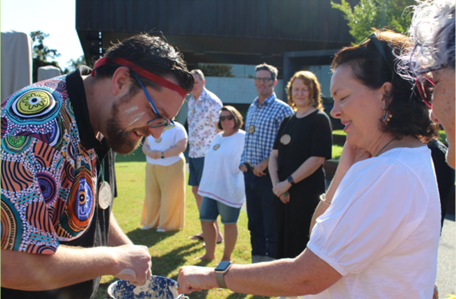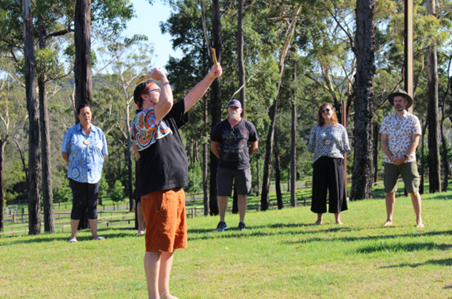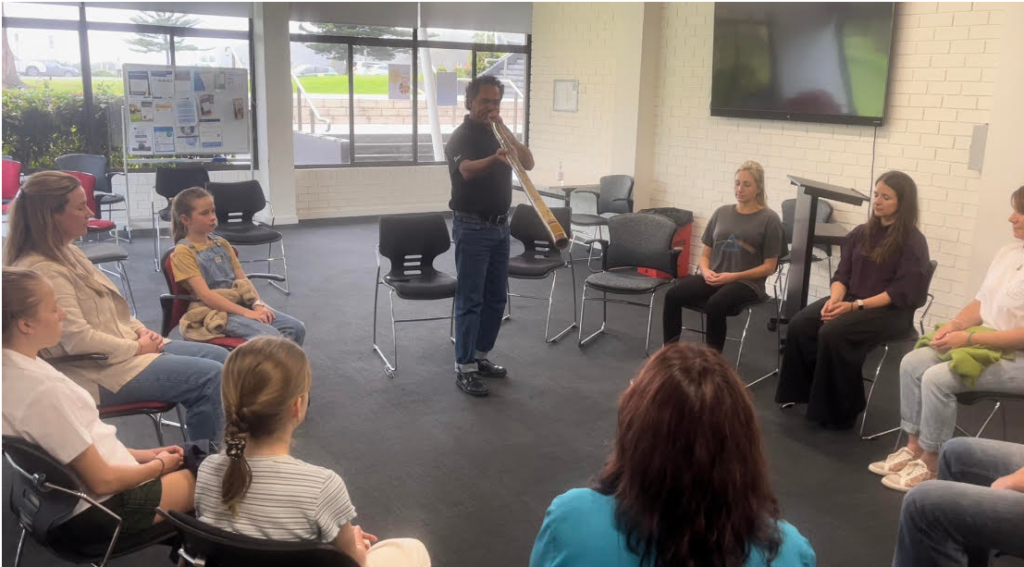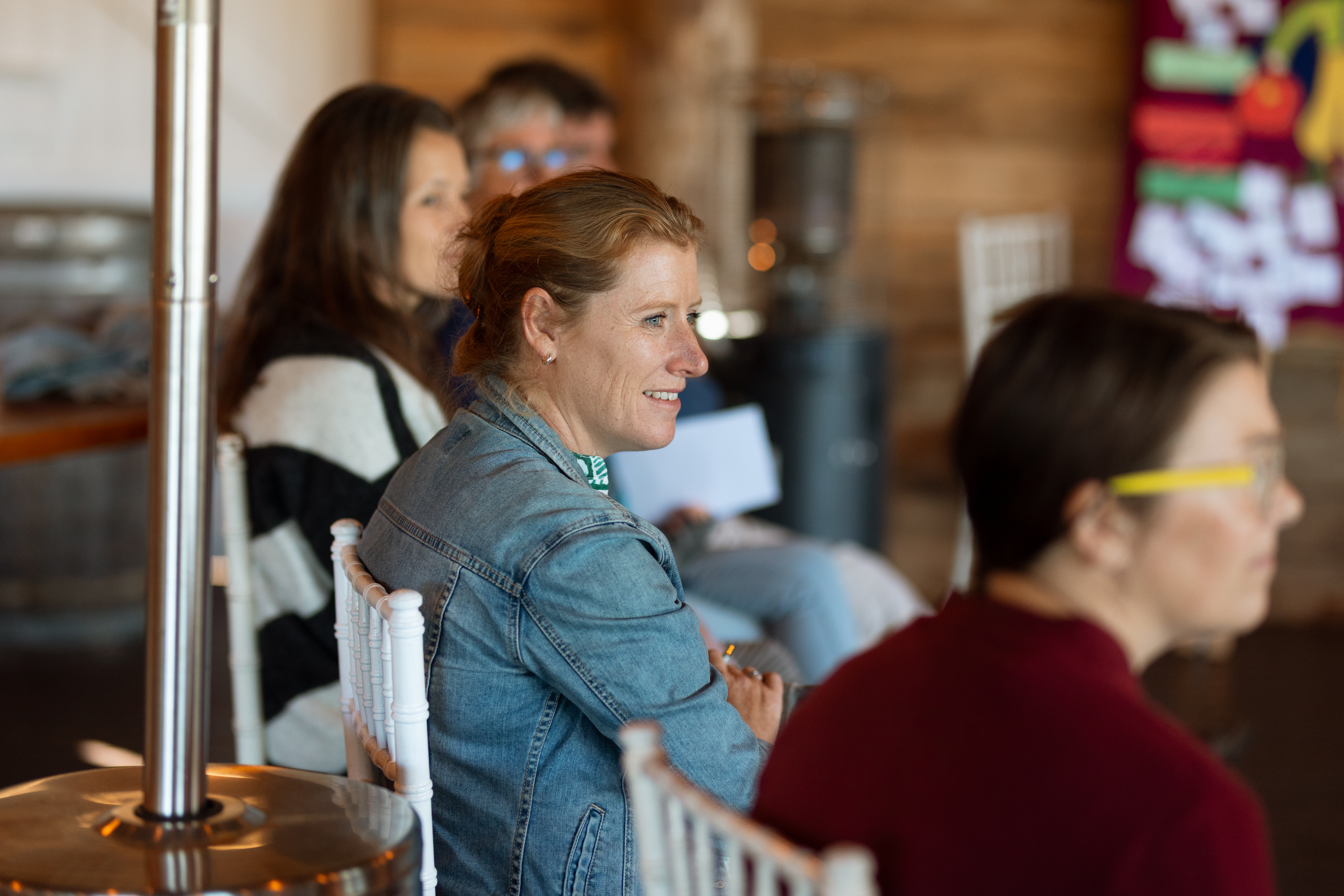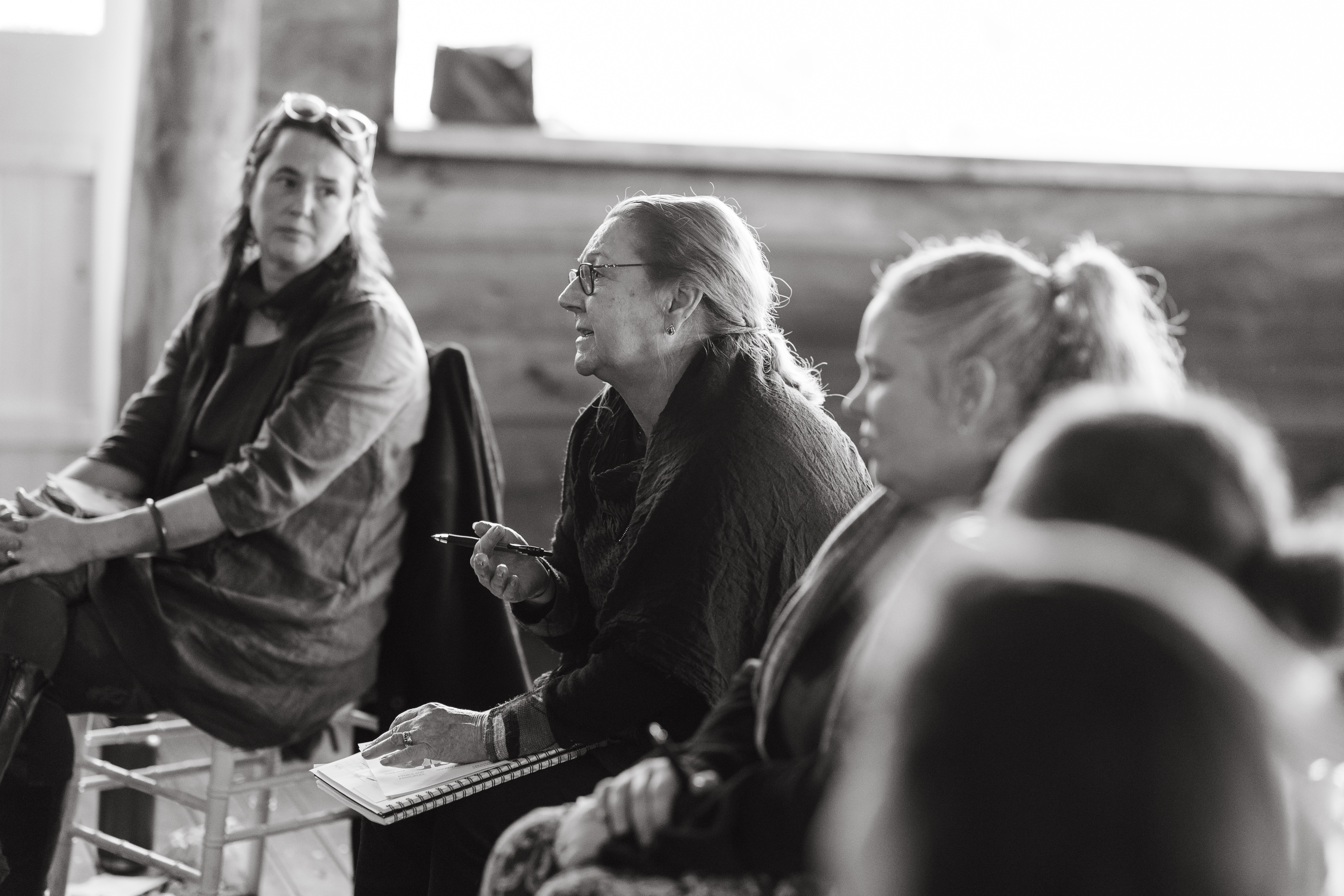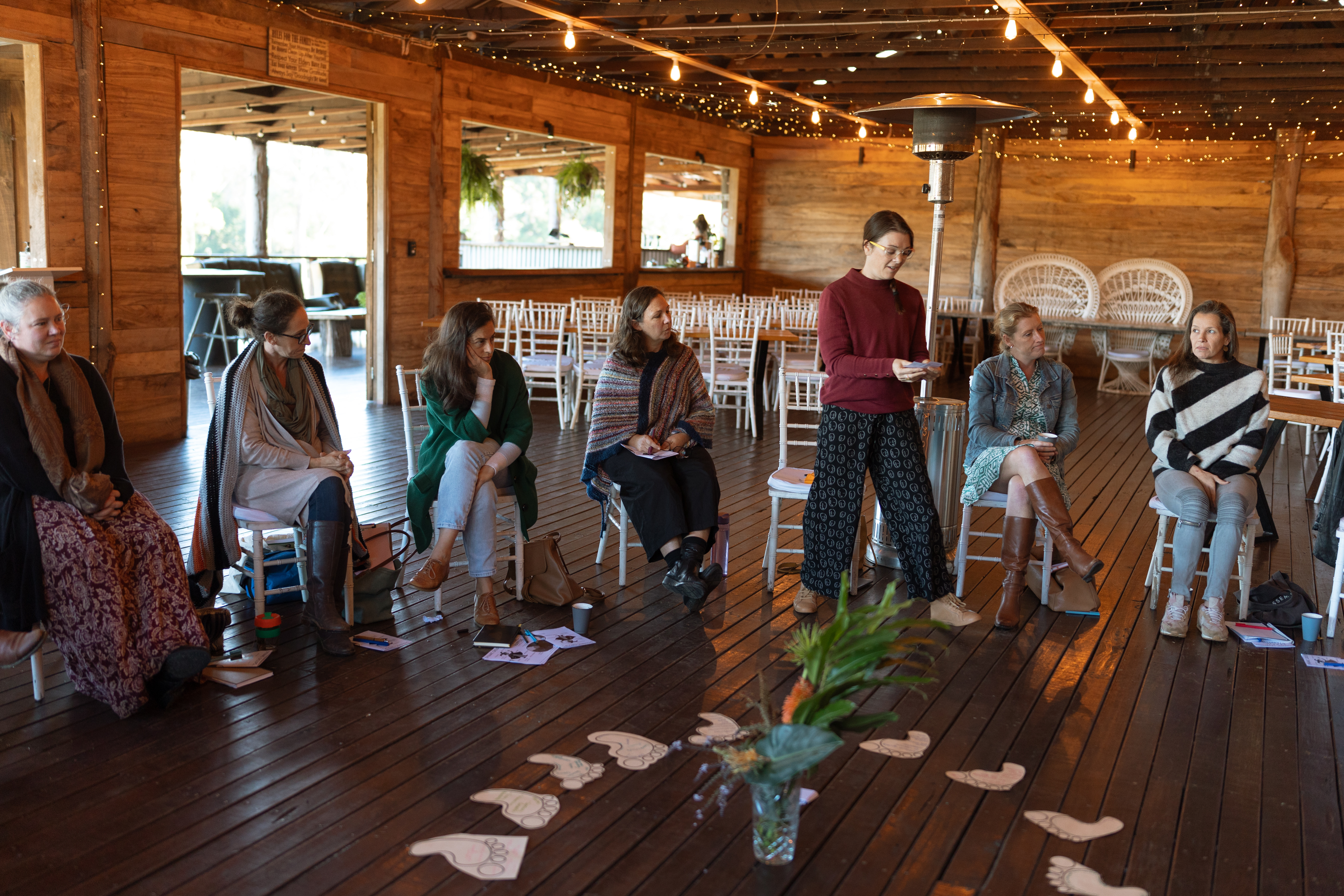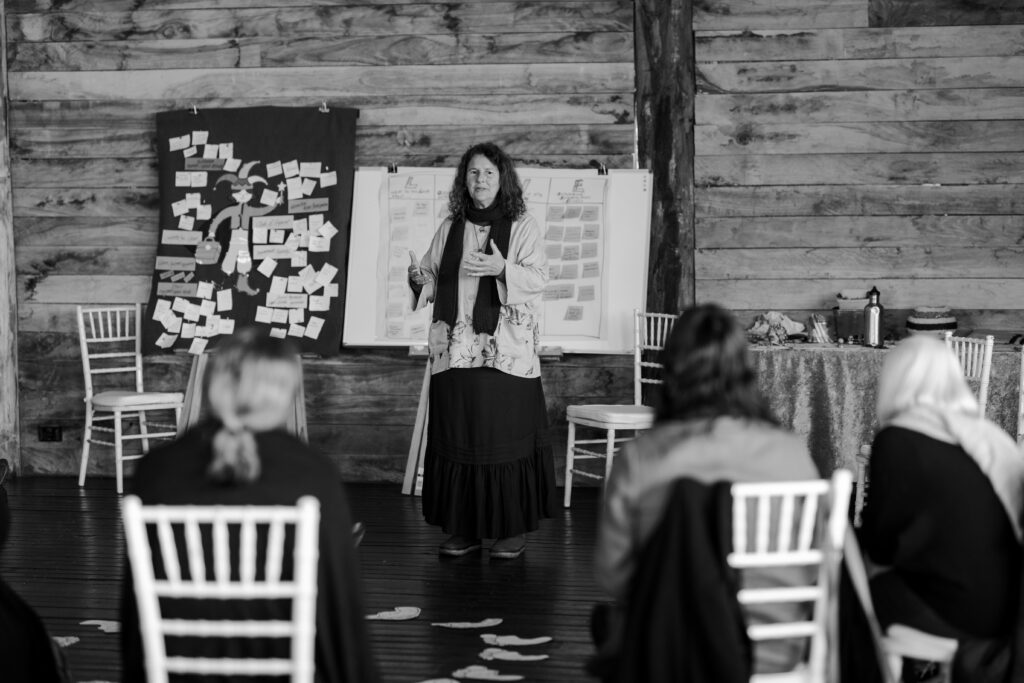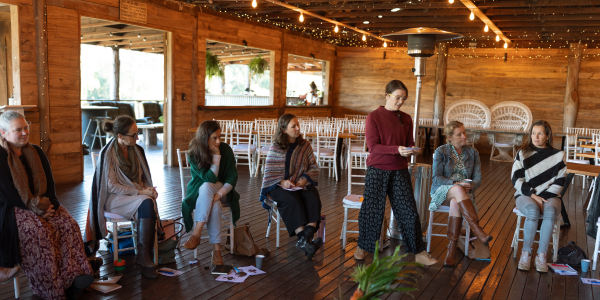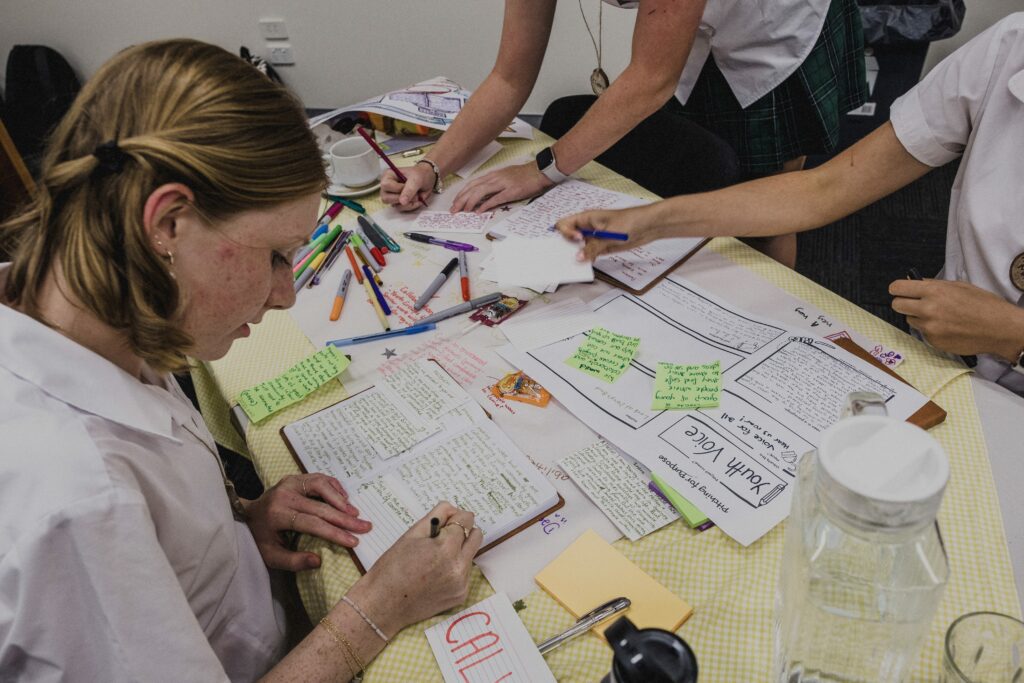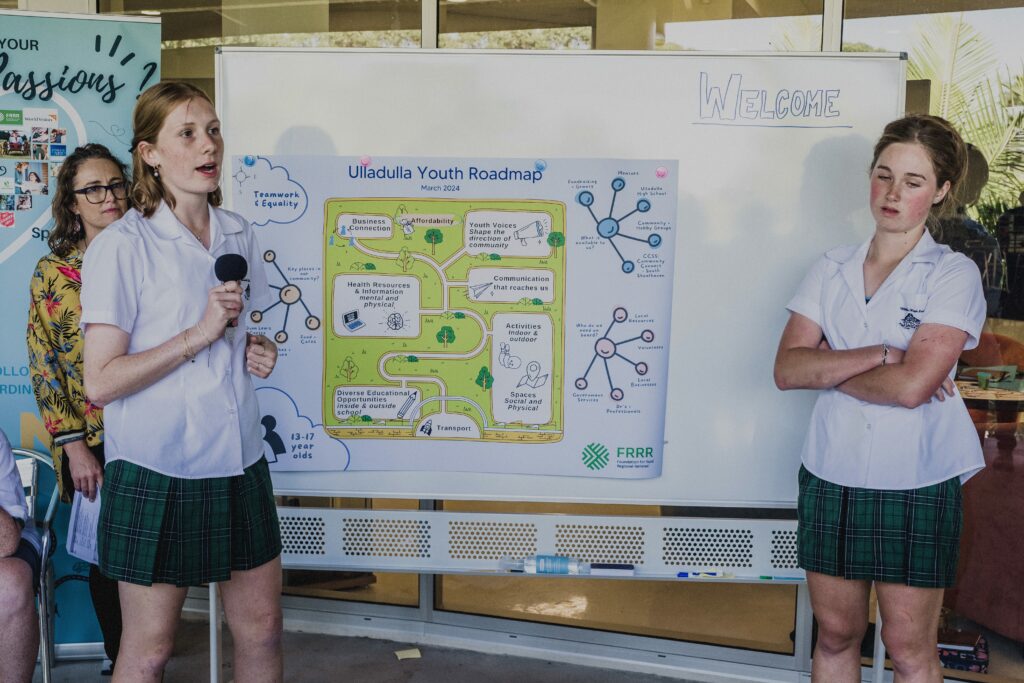Foundation for Rural & Regional Renewal (FRRR)
This article is a personal reflection from our IRCF Program Facilitator in Ulladulla, Monique.
Over the past five years, the IRCF program has woven a rich tapestry of community growth and cultural understanding through an array of touchpoints, workshops, group discussions, events and training sessions. These have allowed community members to network and learn a little bit more about our local Indigenous culture.
As the Ulladulla Community Facilitator, I’ve had the privilege of participating in numerous Welcome to Country ceremonies, each one deepening my appreciation for our connection to this beautiful land and its traditional custodians. I have also enjoyed hearing many community members personalising their Acknowledgements of Country and learning about their connection to this beautiful Yuin nation.
Some of my memorable experiences with community members include:
- Participating in my first smoking ceremony to officially open the High School Sanctuary;
- Witnessing artist Nicole Smede sing in the Dhurga language where her beautiful voice resonated with the spirit of our culture, reminding us of the importance of preserving endangered languages as well as endangered species;
- Didgeridoo meditation with Matt King;
- Standing barefoot, with my hand being painted in ochre;
- Listening to Elders speak about the endangered Black Cockatoo;
- The moving sounds of clapsticks; and
- The graceful dances and storytelling that provided deep insights into Indigenous traditions.
I have also enjoyed sitting in circle with the Ulladulla Yarning Mob to explore how we can help them connect to cultural practices, as well as discussing with local groups how they can learn more about culture and support our local Indigenous service providers.
Throughout our road mapping, workshops, and discussions, we embraced the ancient practice of ‘Sitting in Circle.’ This method, rooted in Indigenous cultural ways, ensures everyone has an equal seat at the table, fostering safe spaces for discussion and allowing for the sharing of passions and perspectives. One local resident, Webby from Lake Conjola, commented that this inclusive hosting method made him feel ‘safe and heard’ and encouraged him to explore various community activities.
Sitting in Circle has also empowered our community to bravely tackle important and difficult conversations. We’ve explored collective needs over individual priorities. Exploring ways to support local Indigenous and other minority groups through our community vision and principles, conversations, offers of support and actions.
I am grateful for the opportunities the IRCF program has provided, allowing myself and many community members to continue our lifelong journey of learning about Indigenous culture. My heartfelt thanks go to the local Indigenous community members who have generously answered our questions, supported and inspired our learning.
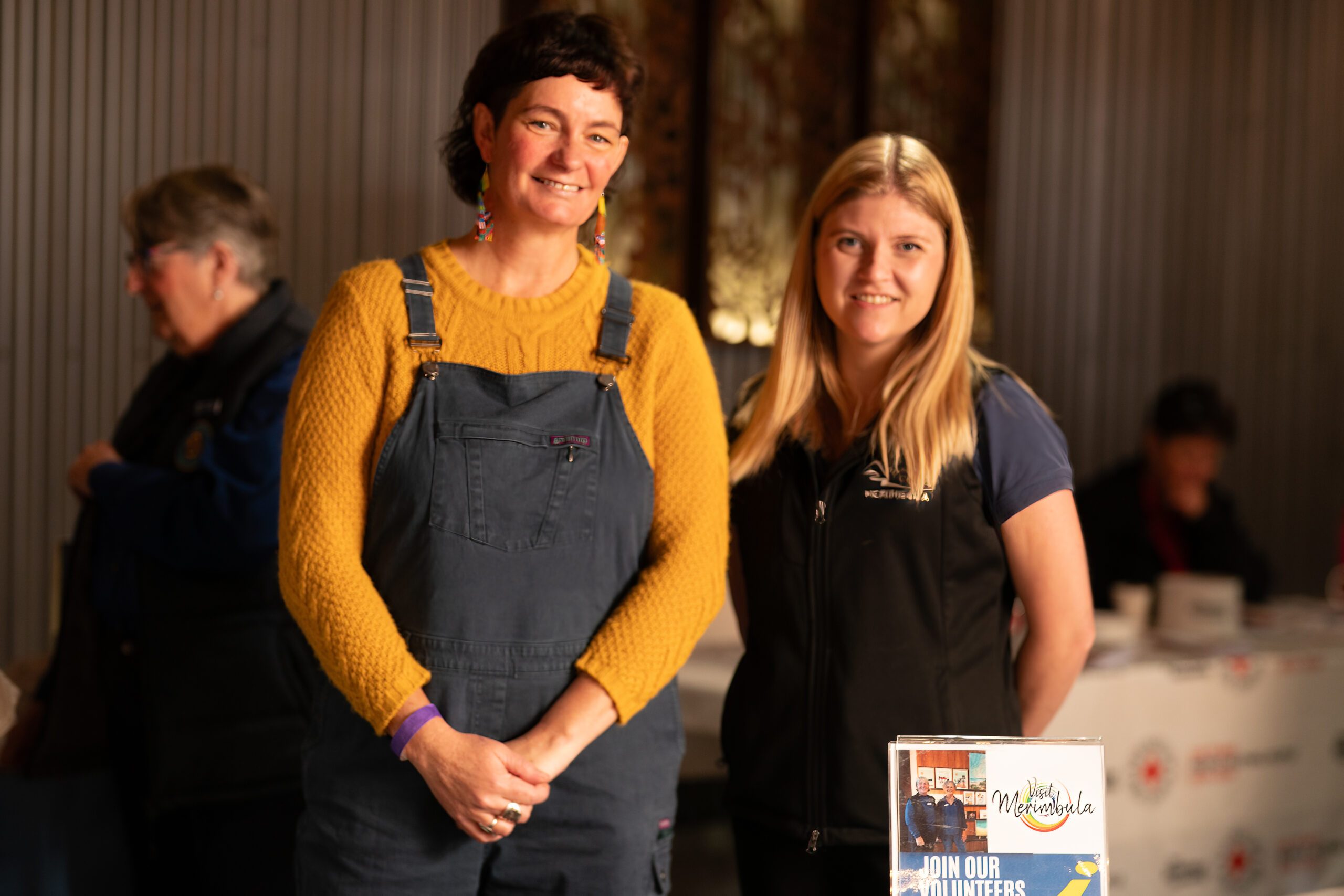
Following Black Summer, the Women’s Resource Centre (WRC) identified the need for more volunteers around women’s issues in Bega Valley. So, they decided to create a role for a Volunteer Program and Activities Coordination Project Worker.
Among the responsibilities of the role were:
- Revising induction processes and forms;
- Maintaining regular communication with volunteers;
- Ongoing support and supervision of volunteers;
- Developing rosters;
- Designing recruitment and workshop flyers;
- Liaising with workshop facilitators; and
- Liaising with other community organisations about volunteer opportunities.
Jade Simpson was recruited into the paid role, working 21 hours a week, supported through FRRR’s IRCF program. Bringing a wealth of insight on the local community and exceptional interpersonal skills to the role, Jade’s been highly successful in recruiting and retaining volunteers at the WRC. During the project, 21 women volunteered more than 350 hours of time at the Centre, taking on roles such as meet and greet, gardening, organising and tidying the Centre, providing admin support and contributing to the Southern Women’s Group historical research project. Jade has also been instrumental in the facilitation of more than 17 workshops. Several volunteers have now become regular weekly contributors, while others have since transitioned to work opportunities.
Jade says that a key element of success has been training, both for herself and WRC Manager Jane Hughes, in addition to the volunteers. Topics included grant writing; suicide prevention; digital mentoring; volunteer recruitment and retention; and domestic violence awareness.
According to Jade, the key to success however was having a clear plan for engagement and sharing the outcomes from the increased volunteering. This included speaking with local media to promote volunteering and at events such as Mental Health Week, the National volunteer Week Celebration, the ‘Many Hands’ Volunteer Expo and to Bega Valley Shire Council.
Having this role allowed Jane to focus on efficiently running the busy Centre in her own limited work hours and to be more readily available to the women accessing the service. The impact of the role has been so significant that WRC has been successful in obtaining further funding to maintain the role for a greater length of time.
“Jade has been incredible, the project has significantly increased volunteer engagement at the WRC. Her hard work has made it possible for us to provide essential training opportunities, to facilitate stronger community engagement and crucially, to work towards securing the continuity of the volunteer coordinator role through various grant applications,” Jane told us.
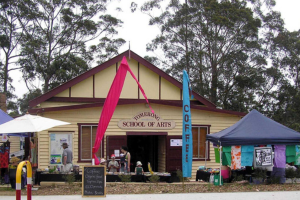
There are often significant and unexpected benefits when NFPs are given support to build their networks and develop strong and effective systems.
A case in point is the Tomerong School of Arts (TSA) in NSW. It manages the Tomerong Hall, which has been a community owned and managed facility since 1926. But they noticed lingering impacts from COVID, including social isolation. When the area lost access to local media outlets, and with internet access in the area poor, it was difficult to let locals to know about opportunities to come together.
Through the IRCF program, TSA sought funding to enhance communication within the community. They opted for a two-part plan designed to strengthen community networks, develop partnerships between NFPs and businesses, and generally foster social capital.
The first project was to create a Welcome Guide for people new to the area, containing information about other NFP’s in the area, available resources, activities at the Hall and the monthly markets. The second was the development and distribution of four newsletters, called the “Tomerong Trumpet”.
The publications were all developed locally, with input from an editor and local artists and published by a local printer. A variety of contributions were also made by local services, people and NFPs. Editorials in the newsletter included information on community fundraising activities and social events, community services and newly established businesses such as Dave’s Coffee Van, based at Tomerong Hall.
With people not having individual mailboxes in the area, distribution was facilitated by several businesses and community services, including Tomerong Post Office, the Tomerong markets and the School of Arts themselves. Digital copies were also made available through social media.
This new way of communicating yielded multiple benefits, including an opportunity for community members to learn journalism, website development and communication skills. In fact, the quality of the Welcome Guide and newsletters was so high that the Editor was approached by various local businesses for advertising. The resulting revenue was used to print beautiful, glossy covers for the publications.
The impact of this project cannot be understated. There has been a 56% increase in the number of stall holders at the Tomerong markets and a 48% increase in market attendees. There has also been an increase in the quantity and diversity of activities at Tomerong School of Arts, with the hall being hired for Yoga, Tai Chi, NDIS groups, weddings, memorials, events during Harmony Week, by the LGBTGIA+ community and various dance groups.
The Hall has become a hub of activity and a source of wellbeing and information for everyone in the community and they were even required to expand their management committee with two additional members.
Perhaps most important of all though, the communication activities have had wonderful ripple effects, including introducing local residents to each other & consolidating a wonderful sense of community. A great example of how this organisation delivered on their goals to better connect with people in their local area and help them become more responsive to community needs and aspirations.
Through IRCF, we saw that organisations that had capability in forming and nurturing partnerships and could engage with multiple community perspectives experienced a greater impact from being involved in the program. This reinforces that strong collaboration is built from experience, different skills and approaches. This was explored recently in more depth at a workshop in the Nambucca Valley.
Bowraville Social Enterprise Precinct (BISEP) has held a series of activities to equip themselves with resources to support the Nambucca Valley community moving forward. Recently, Robin Clayfield shared her expertise in supporting organisations and grassroots community groups to work together effectively for positive change at a session called Dynamic Groups and Sociocracy.
The workshop offered interactive ways for groups to develop a strong sense of culture and clear strategy that is inclusive of multiple perspectives. Robin ensured the group was aware of the facilitation techniques she was using so that they had the ability to use the new skills immediately. She also offered the group an introduction into Sociocracy and the opportunity to practice the process, an interesting methodology that enables diverse groups to work together on a shared purpose, while maintaining autonomy.
The group that gathered included old and new faces, which confirmed that community engagement efforts are paying off. The digital system and communications platform also initiated through IRCF and managed by the organisation, The Valley Hub, is an ongoing form of engagement and is amplifying efforts to connect the community. We’d love to hear how your organisation is harnessing systems to engage local NFPs and residents and ultimately create a stronger community.
Roadmap workshops have been an important part of the IRCF program in each community. Each year in each of the eight participating communities, a diverse group of people from across the community sector comes together to harness each other’s knowledge and together map out what will make the greatest difference in their community.
The competitive nature of many funding and granting programs can hinder collaboration between not-for-profits. The annual IRCF roadmapping process is a space for the community to ‘un-learn’ competition and build enhanced local partnerships and relationships.
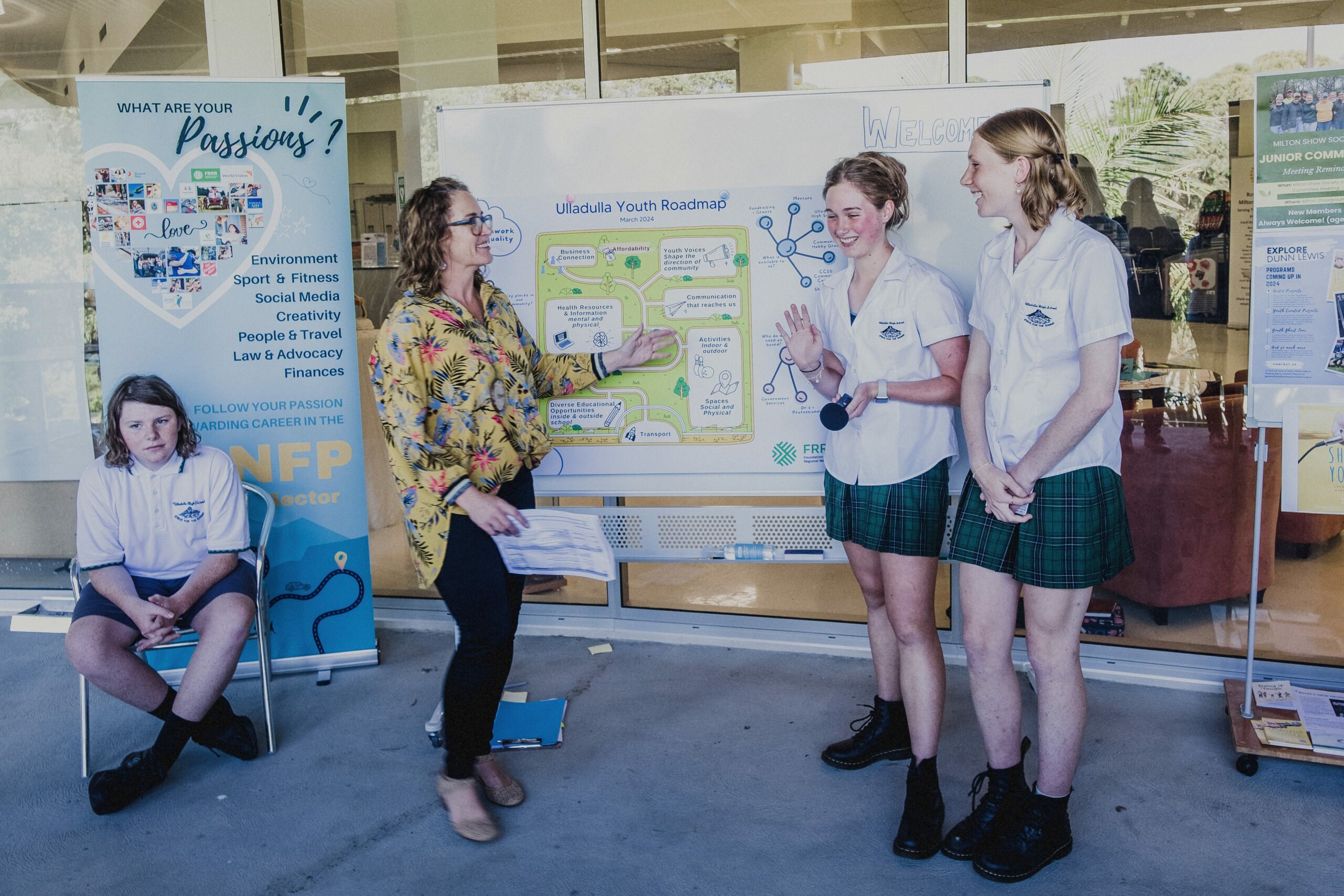
One South Coast participant reflected that, “Roadmapping was brilliant. We had a big demographic of people, and it made everything very concise and clear.”
Each roadmap developed is a unique reflection of the priorities of each IRCF community, with a few recurring themes. One of those recurring themes is engaging young people as the next generation of leadership for communities and the not-for-profit sector. This was tackled head on when young people from Ulladulla High School came together in March to develop a roadmap of their own.
The result: a ‘Youth Roadmap’ for the community with some brilliant ideas for how young people can work alongside existing community organisations, events and infrastructure to enhance them and get the next generation more involved. There is now a movement for change building in partnership with local backbone organisation, the Dunn Lewis Centre.
So why is developing a roadmap so important? They create a shared vision that can act as a map for how the community – and young people – can move forward together with greater connection and a shared vision and common goals for a thriving future.
The IRCF program is designed with roadmapping, community facilitators and capacity building at its core. In the NSW South Coast, the program is culminating in 2024, so the team took the opportunity to codesign four final roadmapping workshops using techniques learned at the Art of Hosting workshop.
A strong learning from the IRCF program around how to connect with busy volunteers who juggle many balls and wear many hats, is the art of invitation. For these workshops our invitation was ‘Lets celebrate our collective effort & explore how to continue the momentum in our community’.

These workshops embraced the opportunity for the groups to review the roadmaps, explore what else may be done, and of course to network. We took a supportive approach to enable the groups to delve into collaborative projects that will benefit the entire community – which will be the focus of the remaining funds generously provided by the Snow Foundation and Bendigo Bank Community Enterprise foundation in the communities.
Attendance at the workshops was strong, with FRRRhosting 55 people. When everyone had gathered, we opened with a check in question at each location: “Can you tell us about a benefit you have personally felt or gained from the IRCF program?”
The sharing that came from this considered question was much richer than any survey could have gathered. Carolyn Ardler, South Coast Program Manager for IRCF, said, “Using Art of Hosting techniques to delve into deeper conversations has been such a strength of the program.”
The groups shared that they now felt more connected to and aware of the NFP community. They have formed stronger relationships within this community and they can now see who is doing what and who has similar needs and common struggles. Not only that but they had formed friendships. The sharing of the skills they had gained was outstanding, with some sharing their growth following opportunities such as the Art of Hosting Conversations that Matter, Regenerate residential program and the Changemakers program, all of which focussed on leadership skill building and connection.
Other learnings were the wide range of capacity building workshops and opportunities throughout the four years. The joy of getting to know people and learn so much from one another without following a cookie cutter approach was one of the biggest benefits of the place based program.
On more than one occasion, people shared that this was the “first time they had popped their head up to see what else was happening.” One Rotarian who has been involved since the beginning of the program said that, “It gave Rotary an opportunity to look at our organisation differently, as well as the opportunity to work with and support other organisations.” A lovely comment was made by a volunteer that it provided “camaraderie – that we all are striving to improve our society.”
The IRCF roadmaps all identified that the NFP sector has a desire to connect with cultural services and better understand the competency journey that comes when connecting more deeply to local first nations culture and people. A participant shared that she has now “a deeper appreciation of indigenous culture.”
The exploration of where we can build on this momentum was different in each community with some groups emerging focused on how community can collectively address important national issues such as homelessness, regional transport and deeper first nations connections, whilst other groups are building alliances across the sector to advocate for funding. The emergence of backbone organisations that support the sector is a strong theme, with one organisation already embedded deeply after four years and wanting to establish more processes and networks to support the volunteers in community.
The workshops were a wonderful opportunity to celebrate the ripple effects that the program has had and to enable us to capture the importance of networking. It provided a space for openness and generosity of the people in the room to shine – creating the opportunity to renew connection and trust in the communities.
Recently our IRCF Program Manager, Nancy Sposato, along with representatives from Junee Community Centre, Junee Community Power and Junee Shire Council spent three joyful days learning about The Art of Hosting at a workshop led by Percolab (formerly Campfire Coop) in Bright, VIC.
They came together with 40 community leaders from across the country. Each leader brought a passion for nurturing community conversations and a desire to do it better.
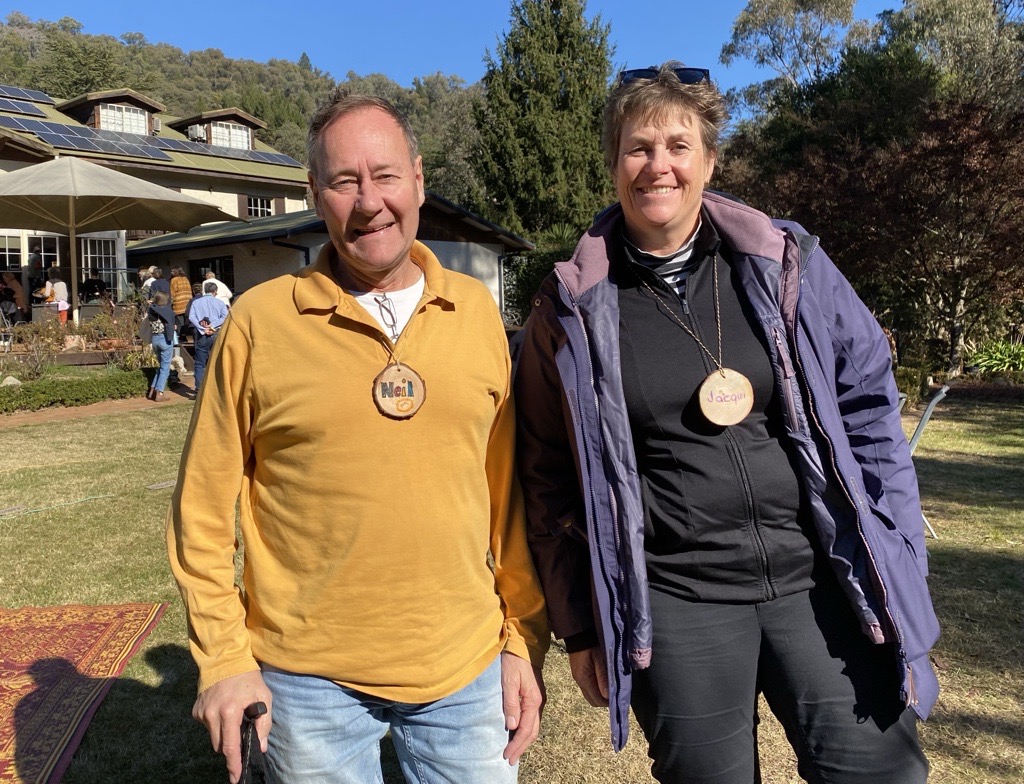
For Junee members, this participation was supported by an IRCF Toolbox grant with local leaders intending to apply skills gained towards developing effective and meaningful ways to foster inclusive community engagement and to have a shared language to be able to support each other in their efforts well into the future. The Junee initiatives that will directly benefit from this investment in people include a project that engages young people in the NFP sector, the development of culturally safe services and uptake in the renewable energy transition.
Nancy reflected, “A question that comes up time and time again is how to manage conflict and differing perspectives in a community. This is a very natural question when people are working on projects that they care strongly about and when people have invested a lot of time and energy.”
The skills gained over the three days offered efficient methods and insights into the awareness we need to have as individuals and the ways people can work together to foster positive cultures where everyone participating feels supported and included. Participants of the workshop spoke about using some of the tools they had learned immediately in work and during meetings.
Nancy and the rest of the community leaders, left with multiple techniques for having important conversations that can be applied to multiple contexts, frameworks to use for collaborative project design and creative ways to collate and share information gathered from community conversations to support greater impact and momentum.
You can check out a foundational Art of Hosting technique, the Four-Fold practice, at the link below.
Learn About The Four-Fold Practice
In January 2022, a review of the Glen Innes health workforce revealed that all three local GP practices had closed their books to new patients – one GP practice had a 300 person wait list! Local health care had become victim to an ageing population, with two GPs scheduled to retire at the end of 2022 and only one in the area under 50 years of age. There were also vacancies in OT, physiotherapy, dentistry, RNs, speech therapy, psychology, and disability care, and many residents, as well as the Aboriginal Health Service, were relying on GPs from up to 60kms away.
Modelled on a Canadian-borne approach, Attract Connect Stay – Glen Innes (ACS-GI) is a grassroots initiative to better attract and support the recruitment and retention of qualified health professionals for the 9000 strong Glen Innes community. During the program’s 2022 pilot, the community demonstrated strong support and capacity to ensure momentum for the model, including building a capable Board and governance structure.
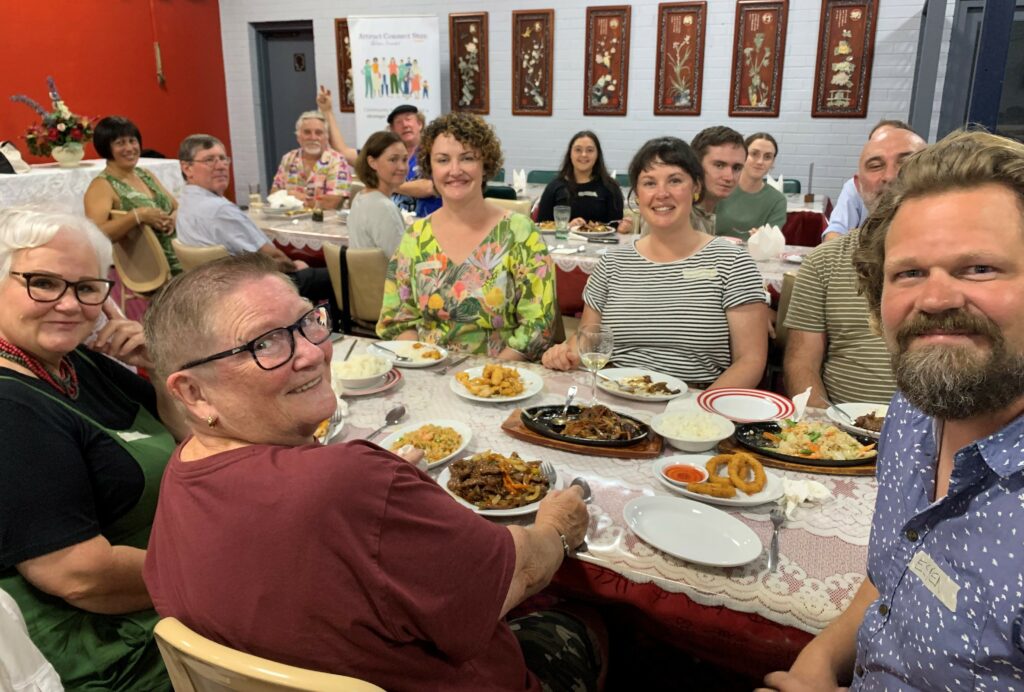
ACS-GI holds an FRRR Fundraising Account, to support operational costs including wages of a Health Workforce Recruiter Connector (HWRC) and general activities. The HWRC role is key to embedding the initiative – this person ensures new-to-area health professionals and their families are supported so that they stay in the district. ACS-GI says this can range from helping them find suitable accommodation to helping their partners find work, daycare or schools for children, connecting them with sporting groups and more.
“The recruitment of Health Professionals is a complicated mission and requires a lot of research. It is a matter of trying anything to elicit the attention of those elusive people who may be just looking for a green-change, a new start for young families away from the city.”
In just under a year the HWRC has saved one GP surgery from closure, assisted 166 patients to move from waiting lists to receiving GP care locally, enabled 153 existing patients to continue receiving care in Glen Innes after their GP retired, and supported 21 new-to-area health professionals to connect and settle in Glen Innes.
Every dollar helps local residents have better access to local healthcare when they need it. If you can help, donate here.
FRRR’s Fundraising Accounts enhance an organisation’s network and fundraising capabilities by offering tax deductibility for donors. FRRR manages the funds with a team of financial experts and offers valuable administrative support, ensuring proper allocation and supports good governance by providing financial statements to account partners for donations supporting their activities. Currently, FRRR hosts 51 fundraising accounts. If you’d like to know more about how this works, contact Jo Kemp at FRRR.
The beautiful Mid-North Coast of NSW is Gumbaynngirr country, with 15,000 Aboriginals living across the region. COVID had significant impacts on the health and wellbeing of local Gumbaynngirr women in particular: local services found it difficult to meet the needs of community, while research conducted with Gumbaynnggirr people on the ramifications of COVID reported that the restrictions on social connection had serious negative impacts on social and emotional wellbeing and overall health.
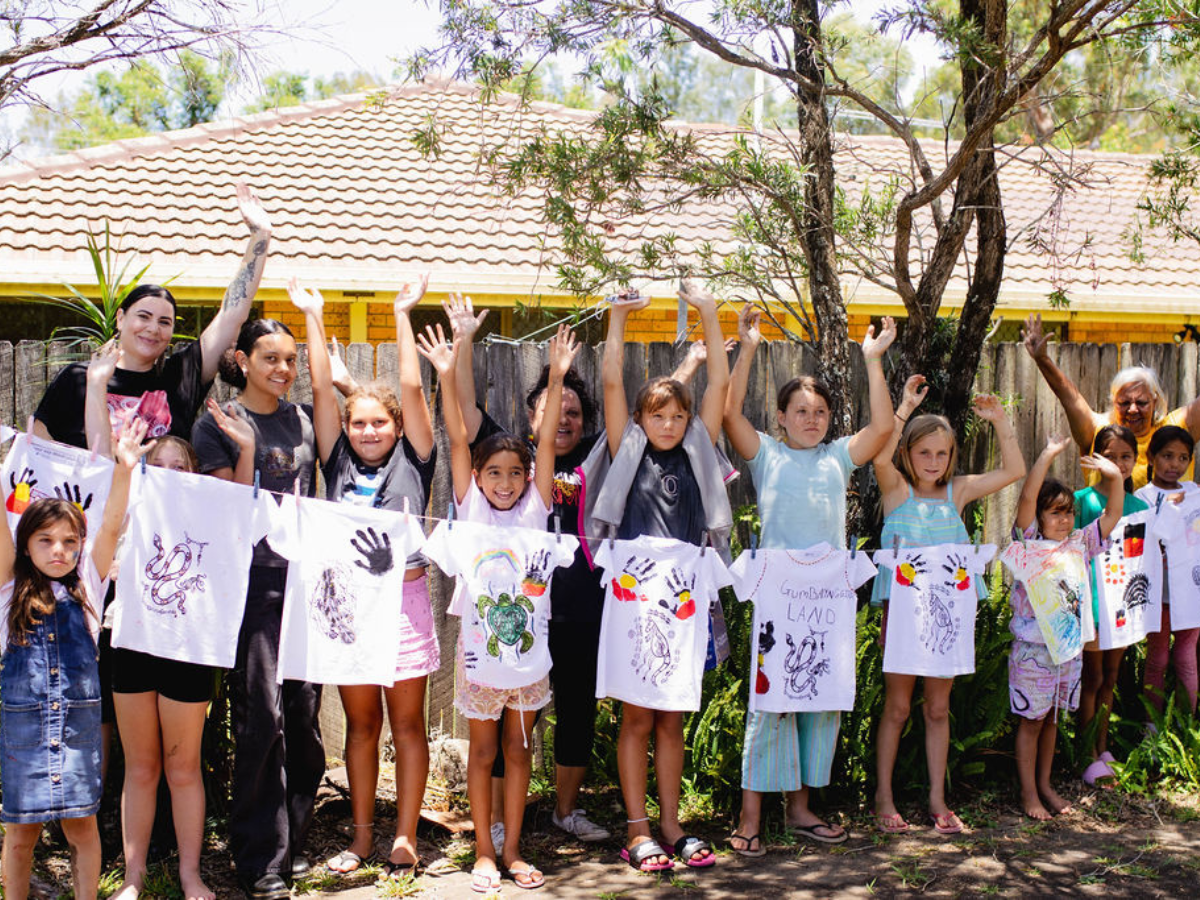
Based in Toormina at the southern end of Coffs Harbour, Happy Boxes Project Ltd aims to alleviate barriers to accessing self-care items for Aboriginal women in remote communities by providing packages of self-care products such as soap, deodorant, and shampoo – otherwise known as ‘Happy Boxes’). Recognising the impacts that COVID-19, Happy Boxes capitalised on their connections to the local community to significantly scale up services and programs at their new community hub: Nyami Gawbarri (Women Gathering).
Nyami Gawbarri was able to support local community members to volunteer their time in the space to pack Happy Boxes for remote communities. Together they were able to pack and distribute 689 Happy Boxes to 22 remote communities throughout Australia. This meant that at least 689 women didn’t have to go without essential hygiene products.
In addition, the Happy Boxes team hired a number of local Aboriginal women to provide programs for hub users and consequently the hub went from being open one day per week to five days, offering programs on topics ranging from cultural meditation, Aboriginal art and cooking, to a five-week program called ‘Mob Radio’ – teaching local teenagers how to be radio presenters.
Critical health services that have traditionally had social barriers to access, such as cervical screening programs, also ran out of the hub. Another outcome of being open five days per week was the creation of an Intensive Support Reintegration Program for teenagers consistently being suspended and disengaged from school. Local schools are now referring their students to Nyami Gawbarri as the organisation can provide a culturally-safe space to spend their suspension, giving back to the local and national communities.
The impact that the project had was described by a local participant:
“The programs for these young women will positively change lives. Providing opportunities for connection and supporting our young women to develop their identity and sense of belonging will have such a huge life lasting impact for them, their families and our Community. Nyami Gawbarri is supporting the development of proud, determined and connected young Jindas.” ~ Anonymous
The level of need for Nyami Gawbarri, and the positive impact that the program of activities over the last twelve months has had for the hub has meant that Nyami Gawbarri is now evolving to become a separate entity and permanent community hub for Gumbaynnggirr women. Critically, throughout this period the project coordinator was able to secure government funding for their role, and hence will be able to continue Nyami Gawbarri’s commitment to provide a culturally-safe space and a plethora of programs beyond the completion of the FRRR-funded project.
Emma Sullings, Chief Executive Officer of Happy Boxes Project Ltd, explains the impact that this grant has had for the hub and the community:
“We are extremely proud of the establishment and succession of a community hub. Nyami Gawbarri stands as a testament to the significance of creating dedicated spaces for women to access a range of services and programs tailored to their unique needs. It is a symbol of community strength, unity and empowerment.”
This inspiring hub has capitalised on opportunity and scaled for the community good – and in the process, showcased how support for locally designed and led initiatives can have long-running positive outcomes. These impressive efforts were supported by a $50,000 grant from FRRR’s Strengthening Rural Communities – Rebuilding Regional Communities program, funded by the Australian Government.
The work of the Wardell Community Organised Resilience Effort (CORE) is an example of how a small town can rally in the face of a natural disaster and be ready for disasters to come. Most days, Wardell is an idyllic spot to live. Lush, green and quiet on the banks of the Richmond River in the Northern Rivers region of NSW. But in 2022, floods devastated the town and others nearby. Wardell had never flooded before, and no one was prepared.
Wardell CORE was set up as a resource centre for emergency donations. Bedding, blankets, clothes, food, medical supplies, water, torches, batteries and tents were all gratefully received. The need was immense. Two years on, Wardell CORE’s primary purpose is still helping affected people. Some are still homeless and many struggle with mental health issues, including PTSD. Their other main aim is to make sure the community is never impacted in the same way again.
Planning for the way forward
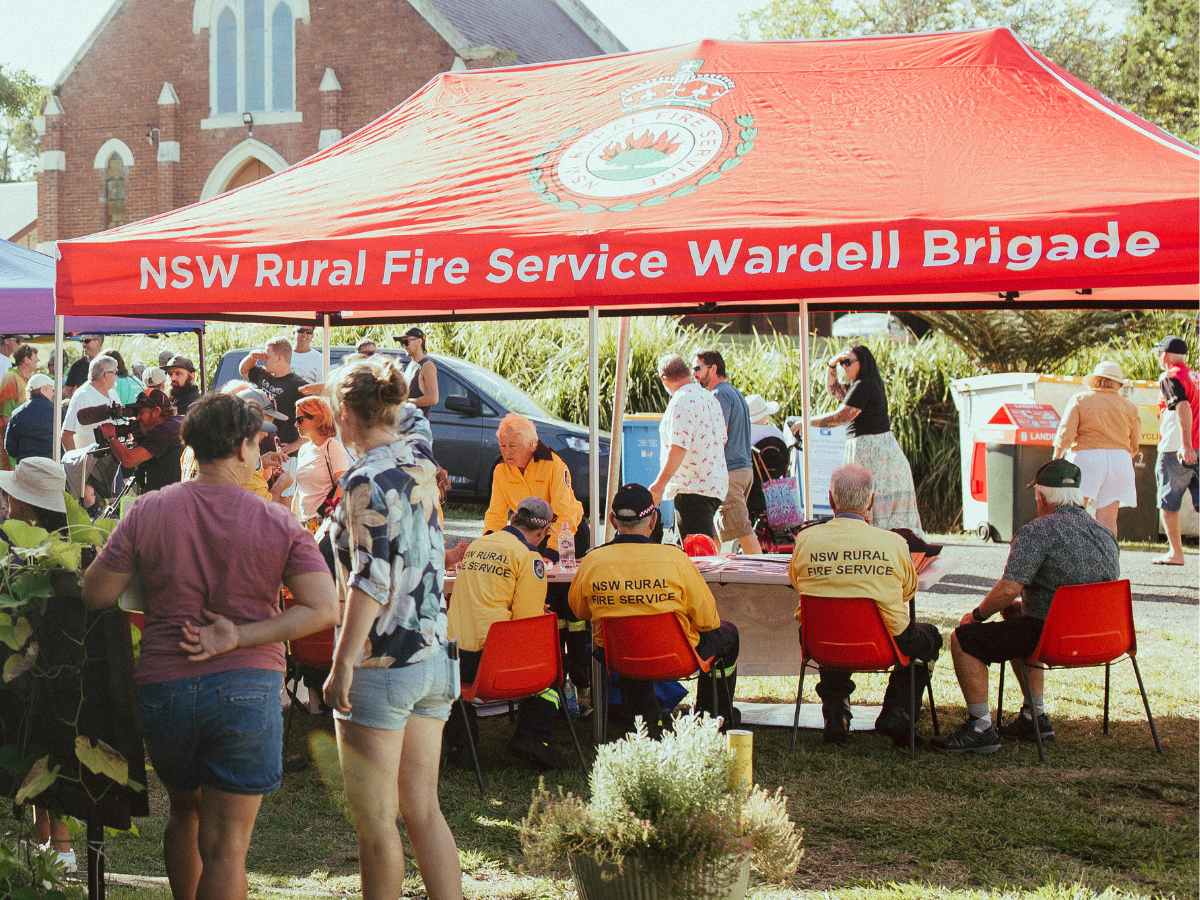
During the 2022 floods, mobile and internet telecommunications were impacted, meaning Wardell and the surrounding communities had limited or no communication in many areas until power could be restored or services fixed. Having no communications during a disaster created all kinds of problems – the emergency services people couldn’t share vital information, residents were cut off from family and friends, and there were any number of complexities around ongoing recovery.
After the flood receded, Wardell CORE immediately started planning for the next one, and detailed planning identified a need for a way for the community to stay informed, given the power outage lasted for two weeks or more. CB radio was the solution. They received a $10,000 grant from FRRR through Telstra’s Connected Communities program that funded the purchase of 10 hand-held devices and two base stations, as well as funds left over to support the community with the appropriate training. Through additional fundraising, they were able to install a relay station that helps to extend the signal as far as possible to provide radio reception throughout town and with the nearby communities of Woodburn and Coraki up-river, and Ballina down-river.
Where to next?
The organisation plans to distribute more radios throughout the region to anticipate flood events as widely and comprehensively as possible. Another resilience move they made was installing a Starlink service that uses a network of satellites to provide internet coverage, and installing onsite battery storage so that they will have internet in the event of future power outages.
The team behind Wardell CORE recognises that locals in the region experience high levels of anxiety about weather events, but the low level of digital literacy in the community is a real barrier to disaster preparedness. To resolve this, they’re looking at establishing a program that teaches people how to access and interpret weather apps and other related platforms.
A spokesperson for Wardell CORE explained the impact of the grant they received.
“Without the FRRR grant from Telstra’s Connected Communities program, we would never have been able to put our disaster preparation plans into action. The lessons learned from the 2022 floods meant we knew what technology we needed and where it should be located. But our reliance on small donations meant we could never have afforded it. Now we have the communications we need to feel confident about our ability to protect our people, physically and mentally, from any flood events in the future.”

